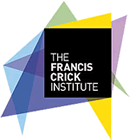Dr Venizelos Papayannopoulos
No more applications being accepted
Funded PhD Project (Students Worldwide)
About the Project
This 4-year PhD studentship is offered in Dr Venizelos Papayannopoulos’s Group based at the Francis Crick Institute (the Crick).
Our lab studies how our innate immune system fights disease but also how it causes pathology when its responses are misregulated. Much of our work centers on innate immune phagocytes called neutrophils. These cells are absolutely essential for our survival against pathogens but can also cause detrimental disease. We use both murine models of infection and human primary cells to understand how neutrophil cell biology impact pathogen clearance strategies and disease pathology.
During infection, neutrophils release large extracellular web-like structures called neutrophil extracellular traps (NETs). NETs are composed of a scaffold of DNA in complex with a large number of neutrophil proteins. NETs play antimicrobial roles but have also been associated with disease (1).
Our work has contributed greatly in our understanding of the molecular mechanisms that regulate NET release and the function of NETs during infection and disease. We have shown that NETs are critical against pathogens that are too large to be phagocytosed such as fungal filaments and have uncovered a mechanism that minimizes NET-damage to host tissues when microbes can be cleared via alternative strategies (2). On the other hand, we also found that NETs drive sterile inflammation and promote atherosclerosis by activating macrophages to release cytokines (3). How NETs perform these functions is still poorly understood.
The project will focus on identifying the NET molecules that play a critical role in macrophage activation and uncover the molecular mechanisms through which these factors promote inflammation in atherosclerosis. We will use activity-based biochemical purification and a multitude of in vitro assays that we have developed, to specifically interrogate the role of these factors in NET function.
Given that NETs are complex structures, there is a great potential that these studies will uncover complex novel interactions between different NET factors and their targets other immune cells. We will also use state of the art microscopy in combination with biochemical and protemic approaches to analyse spatial and functional relationships of NET components. The importance of these interactions and mechanisms will also be investigated in mouse models of atherosclerosis.
This project will help us to better understand the mechanisms that drive inflammatory disease and will pave the way for the development of novel therapies for atherosclerosis and other diseases where NET-mediated inflammatory pathology is relevant.
Talented and motivated students passionate about doing research are invited to apply for this PhD position. The successful applicant will join the Crick PhD Programme in September 2017 and will register for their PhD at one of the Crick partner universities (Imperial College London, King’s College London or UCL).
Applicants should hold or expect to gain a first/upper second-class honours degree or equivalent in a relevant subject and have appropriate research experience as part of, or outside of, a university degree course and/or a Masters degree in a relevant subject.
APPLICATIONS MUST BE MADE ONLINE VIA OUR WEBSITE BY 23:59 (UK TIME) on SUNDAY 26 MARCH 2017. APPLICATIONS WILL NOT BE ACCEPTED IN ANY OTHER FORMAT.
https://crick.ac.uk/about-us/jobs-and-study/phd-programme/
Funding Notes
Successful applicants will be awarded a non-taxable annual stipend of £22,000 plus payment of university tuition fees. Students of all nationalities are eligible to apply.
References
1. Branzk, N. and V. Papayannopoulos (2013)
Molecular mechanisms regulating NETosis in infection and disease.
Seminars in Immunopathology 35: 513-530. PubMed abstract
2. Branzk, N., A. Lubojemska, S. E. Hardison, Q. Wang, M. G. Gutierrez, G. D. Brown and V. Papayannopoulos (2014)
Neutrophils sense microbe size and selectively release neutrophil extracellular traps in response to large pathogens.
Nature Immunology 15: 1017-1025. PubMed abstract
3. Warnatsch, A., M. Ioannou, Q. Wang and V. Papayannopoulos (2015)
Neutrophil extracellular traps license macrophages for cytokine production in atherosclerosis.
Science 349: 316-320. PubMed abstract

 Continue with Facebook
Continue with Facebook

